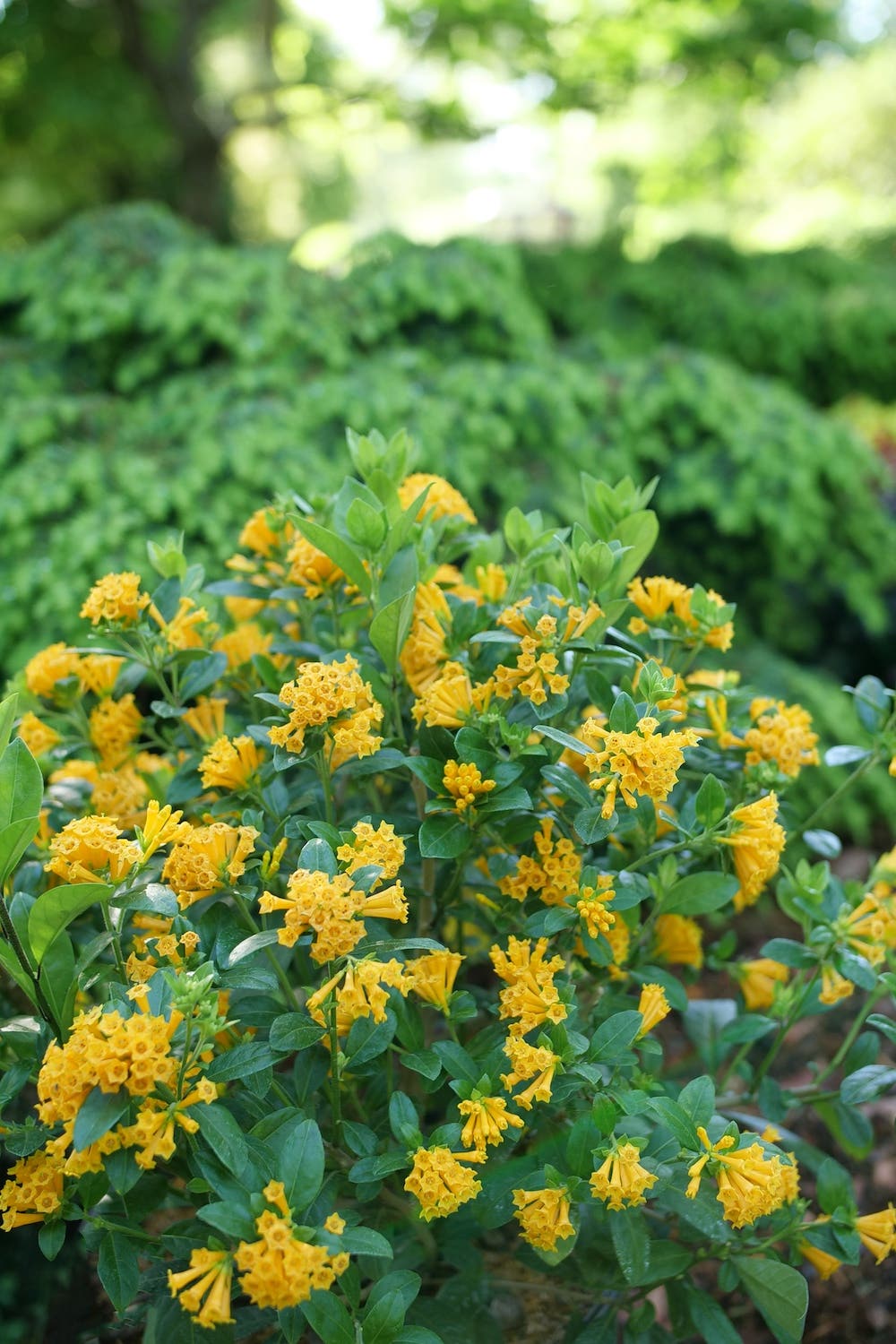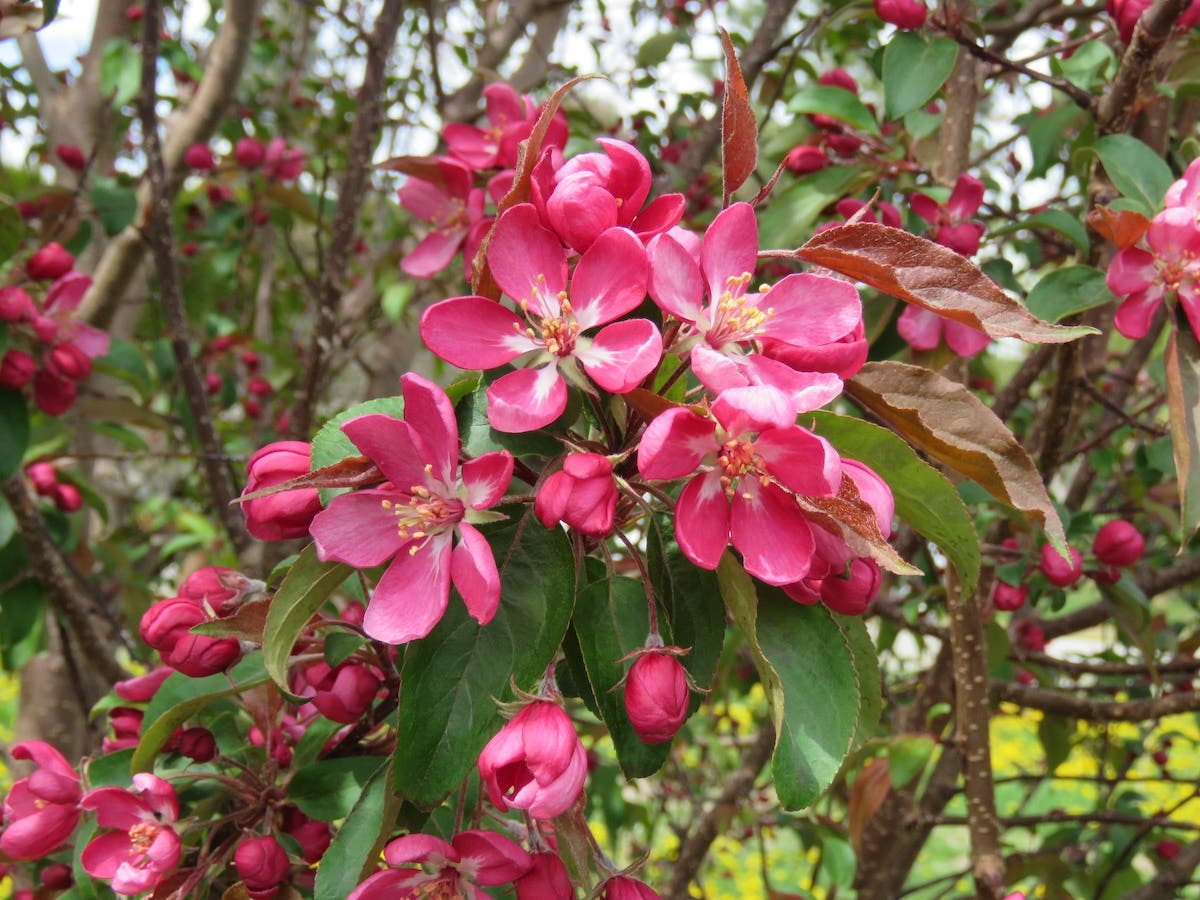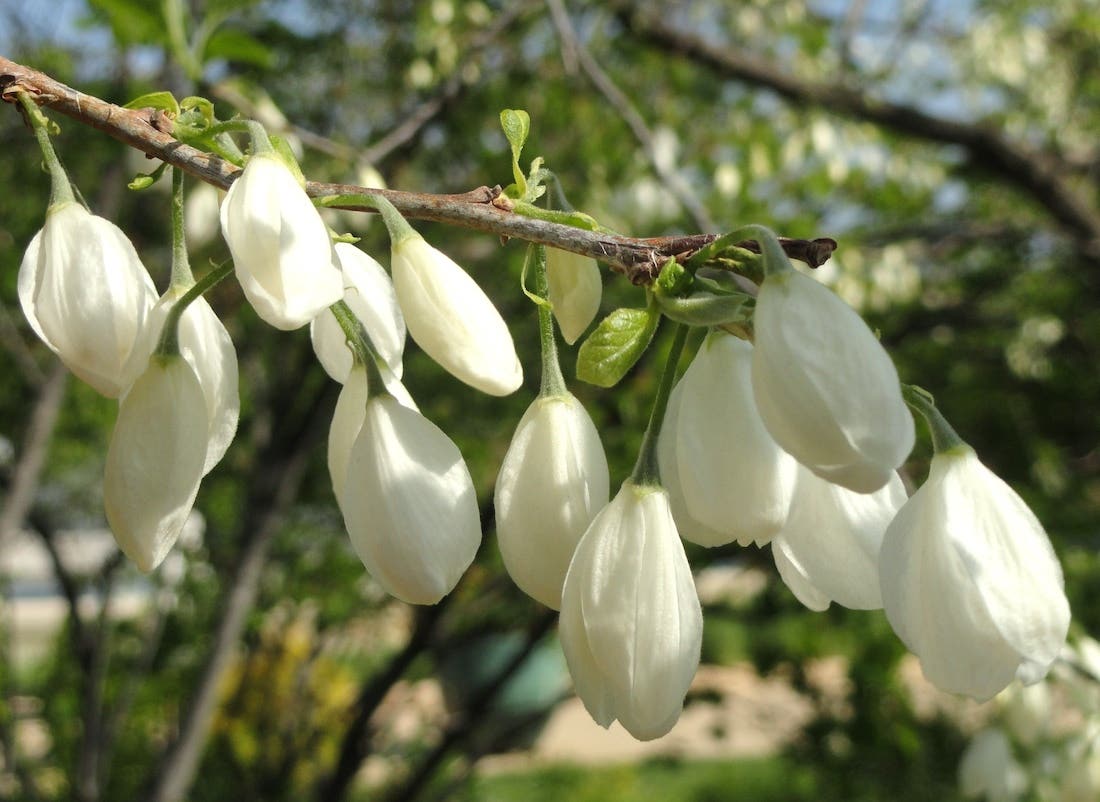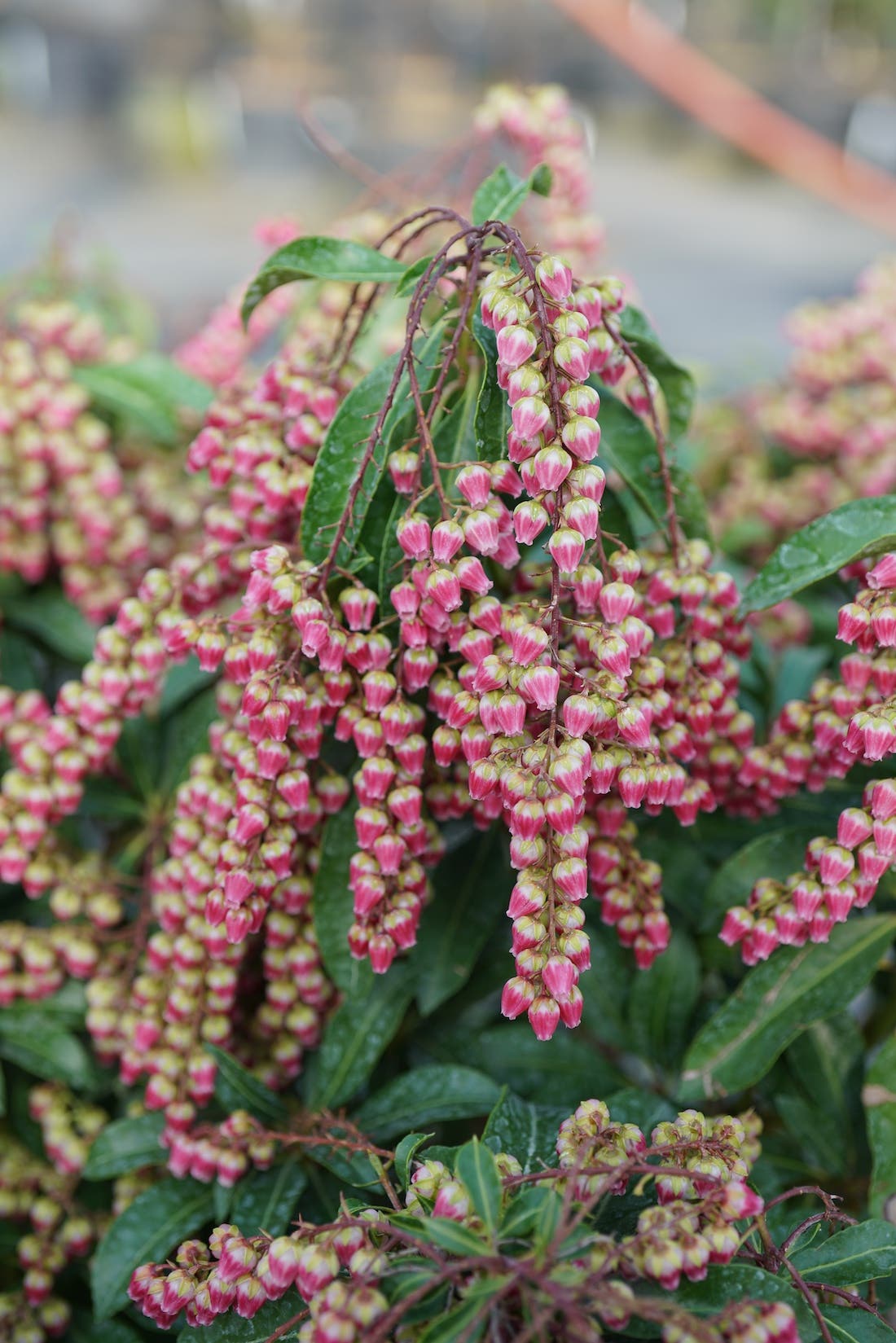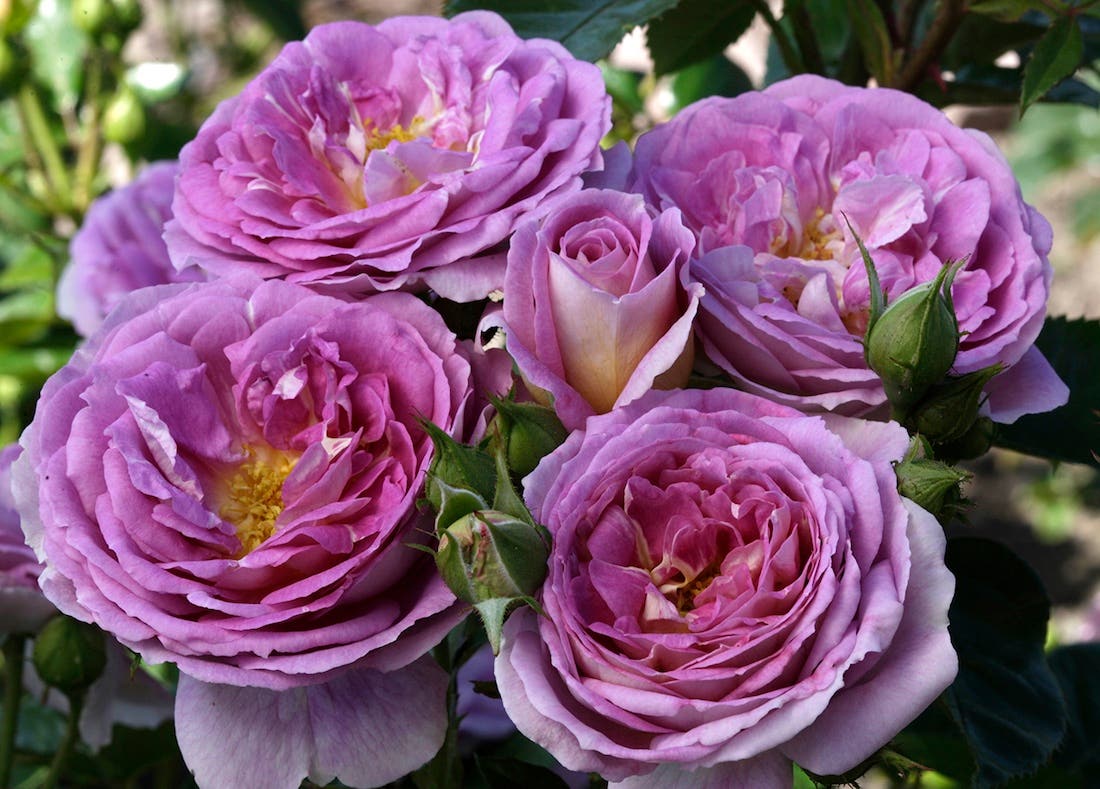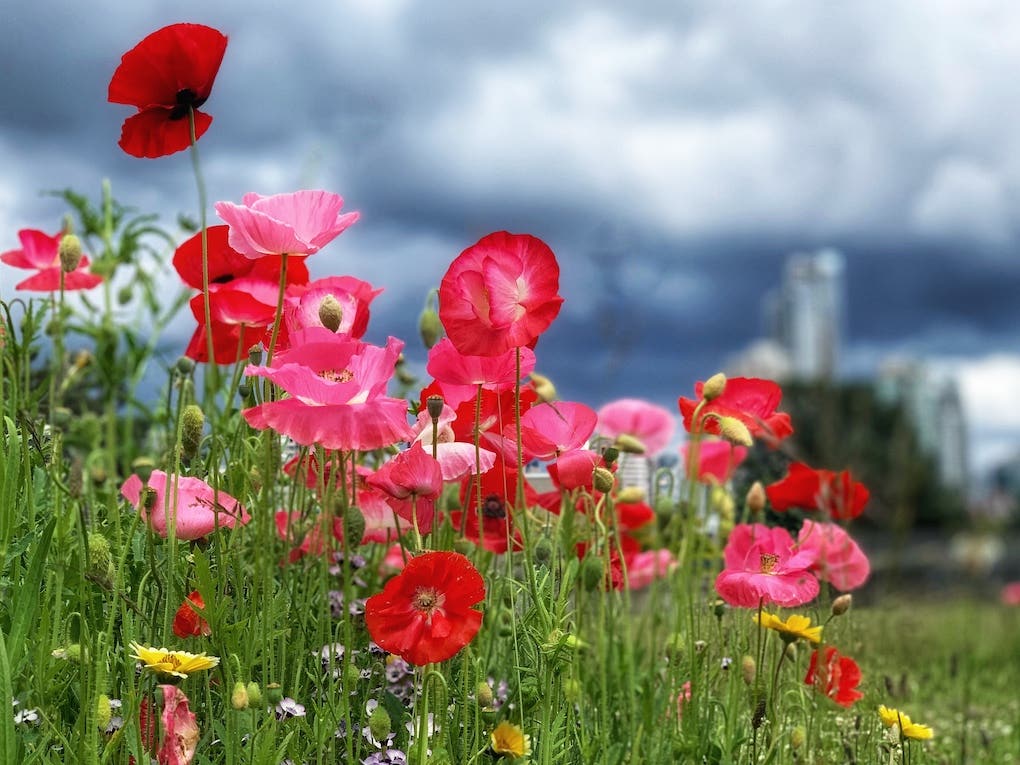Virtues: Lemon geranium offers beautifully lemon-scented foliage for a modicum of care. It is happy in full or partial sun, in pots or in the ground. However, the smaller size and strong fragrance of its leaves recommends it for container growing, since a pot, planter or window box will elevate it and call attention to it. Brushing or crushing the leaves releases the fragrance, so site this plant where you and your garden guests can really interact with it! The lemon scent is also purported to repel mosquitoes, so some growers rub the leaves on their hands before setting to garden tasks.
Common name: Lemon geranium
Botanical name: Pelargonium crispum
Exposure: Full to part sun
Flowers: Pink, five-petaled flowers appear on skinny stalks that rise amid the foliage from early to midsummer.
Foliage: The crimped, toothed, ruffly leaves are very small compared to other scented geraniums and the florist's (zonal) geranium. They emit a lemony fragrance when brushed or crushed. These small leaves were traditionally used to scent the water of finger bowls. There is a cultivar 'Variegatum' that has white-edged leaves. 'Prince Rupert' has a light green leaf margins. 'French Lace' has yellow margins.
Habit: Lemon geranium forms a shrubby plant reaching up to about two feet tall and one foot wide. It is evergreen.
Origin: Africa
How to grow it: Plant lemon geranium in a pot or in a garden where it will receive at least four hours of direct sun each day. In hot Southern regions, the site should get some shade at midday, when the sun is most harsh. They prefer lean to average soil; very fertile soil or the overuse of plant food can make them leggy. Restrict feeding to a light dose of all-purpose water-soluble food every two weeks, or to a light topdressing of slow-release fertilizer once in spring. Should growth start to sprawl and stretch, trim it back to encourage branching and a more compact habit. This geranium requires good drainage and even watering; err on the dryer side rather than watering frequently.
The scent of the foliage will be most noticeable when the plant is brushed against, so place lemon geranium at the edges of a pathway or in elevated pots beside seating areas. Lemon geranium is a perennial hardy in USDA Zone 9 through 11; elsewhere it can be kept as an annual or wintered as a houseplant in a south-facing window.


